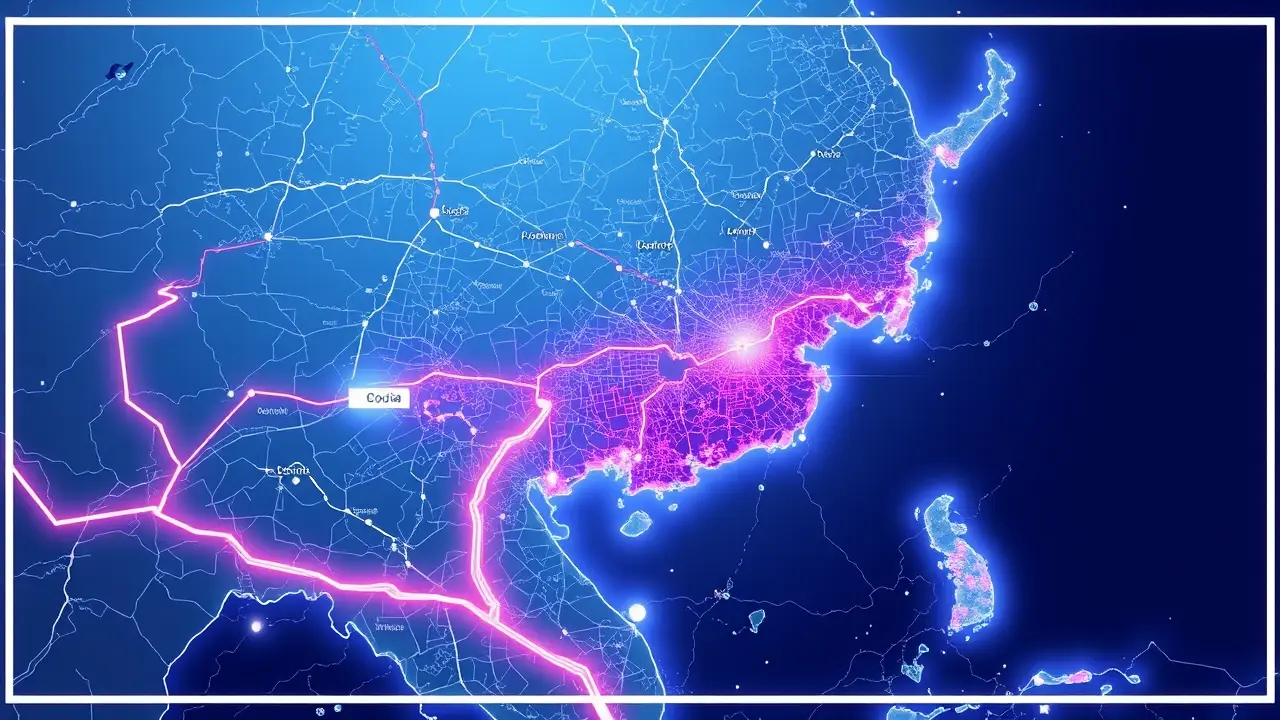South Korea Considers Approving Google and Apple Map Data Requests
The geopolitical chessboard of Northeast Asia just witnessed a subtle but significant pawn move, as South Korea weighs the monumental decision of granting tech titans Google and Apple access to its high-resolution map data—a maneuver fraught with risk and opportunity that could recalibrate the region's strategic balance. For decades, South Korea has maintained a fortress-like stance on its geospatial information, a policy born from the existential threat posed by its northern neighbor; the national mapping agency's 1:5,000 scale charts have been treated with near-sacrosanct secrecy, classifying everything from bridge load capacities to mountain pass elevations as matters of national security.This protective impulse isn't mere paranoia—it's a logical extension of the Korean War's unresolved legacy, where terrain knowledge could mean the difference between defense and devastation in a conflict that technically never ended. Yet now, the Ministry of Land, Infrastructure and Transport finds itself caught in a classic 21st-century dilemma: the tension between sovereign control and technological inevitability.On one flank, domestic champions like Naver and Kakao have built formidable mapping ecosystems, but they remain largely confined to the peninsula's borders, while Google Maps operates with jarring limitations here, unable to provide real-time navigation or detailed zoning data, reducing it to a digital tourist pamphlet. The corporate argument, articulated through carefully worded white papers and diplomatic channels, centers on economic opportunity—the autonomous vehicle industry, for instance, languishes in a competitive handicap without centimeter-accurate lane data, potentially costing South Korea its foothold in the next transportation revolution.But peel back the corporate rhetoric and you'll find the real stakes: data sovereignty in an age where digital maps have become the new oil, fueling everything from AI algorithms to drone delivery networks. The security establishment's nightmares aren't abstract; imagine Pyongyang acquiring detailed terrain models of Seoul's subway evacuation routes through a third-party server breach, or Chinese intelligence correlating satellite imagery with ground-level data to identify soft infrastructure targets.These aren't hypotheticals—they're the daily calculations in secure briefing rooms where analysts map worst-case scenarios with chilling precision. Meanwhile, the geopolitical undercurrents run deeper still; Washington would undoubtedly welcome greater interoperability between its tech champions and a key Asian ally, while Beijing watches carefully, aware that enhanced US corporate presence in Korean digital infrastructure complicates its own technological sphere of influence.The compromise likely taking shape behind closed doors—perhaps a phased approval with air-gapped data processing facilities on Korean soil, or mandatory partnerships with local firms—represents the new art of techno-diplomacy. What unfolds in Seoul will become a global precedent, a case study in how middle powers navigate the treacherous waters between American tech hegemony and national security imperatives. The map data decision isn't just about navigation; it's about drawing the boundaries of digital sovereignty in an interconnected world.
Latest News
The charts are whispering what the true believers have felt in their bones for weeks—Dogecoin is carving out a bottom.
17 hours ago5 comments
The Institute for Fiscal Studies has thrown a stark warning onto Rachel Reeves's desk, urging the Chancellor to confront a potential £22 billion shortfall in
17 hours ago3 comments
Alright, let's break down this absolute heater of a performance from the Chicago Blackhawks, because if you missed this one, you missed a party.
17 hours ago5 comments
The ice was hot last night in the NHL, folks, serving up a slate of games that felt less like a regular season Tuesday and more like a playoff preview with a
18 hours ago3 comments
The XRP chart is painting a tantalizing picture for those with the stomach to withstand the relentless pressure from crypto's leviathans.
18 hours ago4 comments
It’s in the small shifts, the quiet recalibrations of a Thursday morning, where the most meaningful change often takes root.
18 hours ago4 comments
In a move that sent ripples of quiet confidence through the crypto ecosystem, blockchain intelligence firms tracked a monumental treasury allocation from
18 hours ago4 comments
In a move that would have drawn a nod of approval from historical figures like Churchill, who understood the delicate balance of power within democratic
18 hours ago2 comments
JA
Jamie Larson123k6 hours ago
wow watching them navigate this is like watching a kid become an adult so proud of the thought and maturity here 🥹
0
MA
Maya Rivers123k10 hours ago
can’t sleep and now i’m thinking about how maps are basically the new oil idk it all feels a bit inevitable smh
0
JA
Jamie Wilson123k17 hours ago
interesting how this is all about data now tbh, curious to see what they decide
0
